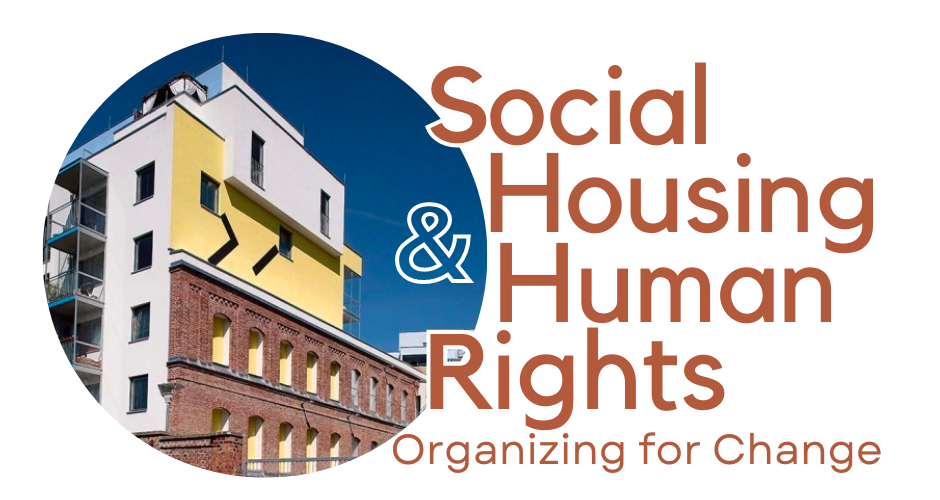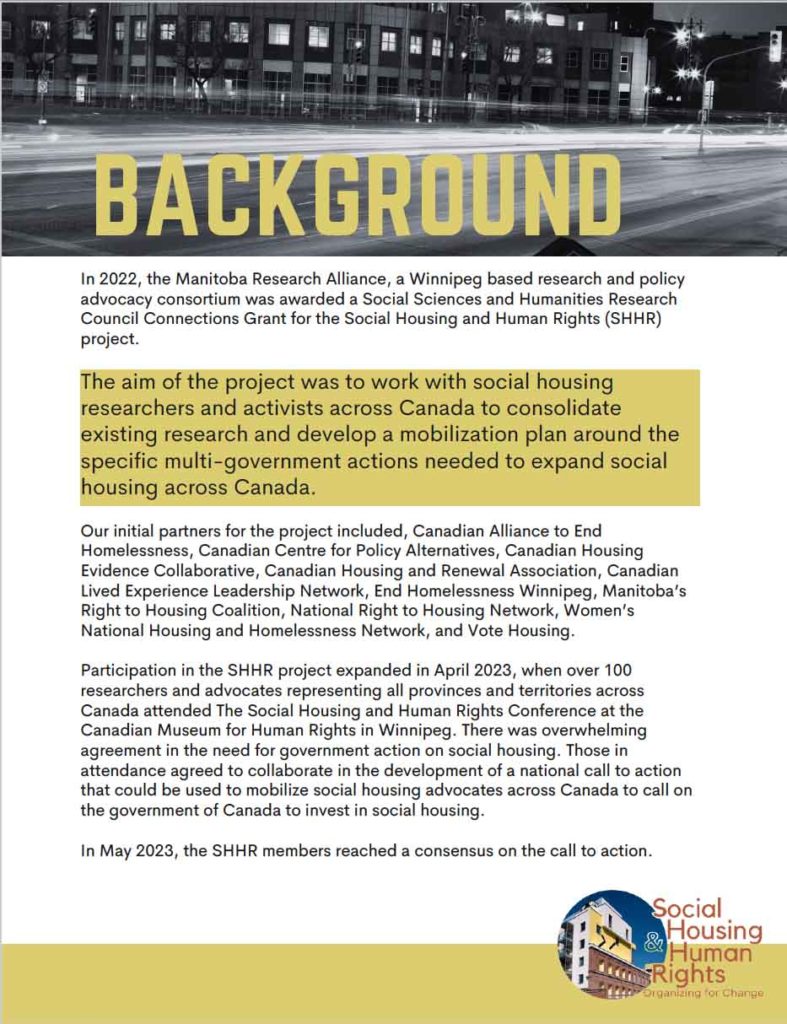Call to Action
We call on the Prime Minister and the Minister of Housing to fulfill their legal obligation to realize the human right to housing and:
1. Create a minimum of 50,000 net new rent-geared-to-income social housing units each year for 10 years, starting now. These units should be targeted for those experiencing core housing need and homelessness and have rents permanently set at no more than 30% of household income.
2. Invest in the acquisition, construction, operation, and maintenance of new and existing public, non-profit, and cooperative-owned housing that meets the unique and varied requirements of people experiencing core housing need and homelessness.

